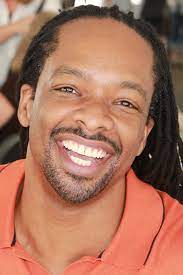
All politics is local, they say. And all poetry, too, seen in a certain slant of light. Sometimes it’s bright and obvious. Other times, you have to work in the dark a bit to see it.
As I continue to slowly read (and reread) Terrance Hayes’ American Sonnets for My Past and Future Assassin, I find not a little (wait for it) politics. This is not surprising, considering the word “American” in the title. It’s a fraught word these days. Divisive. Undefinable. Or, if you’re an insistent lexicographer, with too many definitions to track down.
But that’s OK. Sometimes politics preaches to the choir, joining church and state. One example is this sonnet which does not directly name “He Who Must Not Be Named for Fear of Getting Cheetos Dust All Over the Furniture” (it’s a character in Harry Potter— look it up), but leaves little political guesswork for the novice reader.
Anyway, take it away, Terrance:
Are you not the color of this country’s current threat
Advisory? And of pompoms at a school whose mascot
Is the clementine? Color of the quartered cantaloupe
Beside the tiers of easily bruised bananas cowering
In towers of yellow skin? And of Caligula’s copper-toned
Jabber-jaw jammed with grapes shaped like the eyeballs
Of blind people? Light as a featherweight monarch,
Viceroy, goldfish. Pomp & pumpkin pompadour,
Are you not a flame of hollow Hellos & Hell Nos,
A wild, tattered spirit versus what? Enemy to Foe of
Those Opposed to Upholding the Laws Against What?
I know your shade. You are the color of a sucker punch,
The mix of flag blood & surprise blurring the eyes, a flare
Of confusion, a contusion before it swells & darkens.
Reading the poem aloud gives you some rewarding sounds like “Jabber-jaw jammed” and “grapes shaped” and “Pomp & pumpkin pompadour” and especially “flag blood & surprise blurring the eyes.”
And though the coloring of this character unwanted in 50 states is other-worldly, I guess “the color of a sucker punch” comes about as close as a body can to describing it. Or as close as a body wants to come, anyway.
God save us. And, while we’re at it, let’s thank Him. For politics in poetry, I mean.


